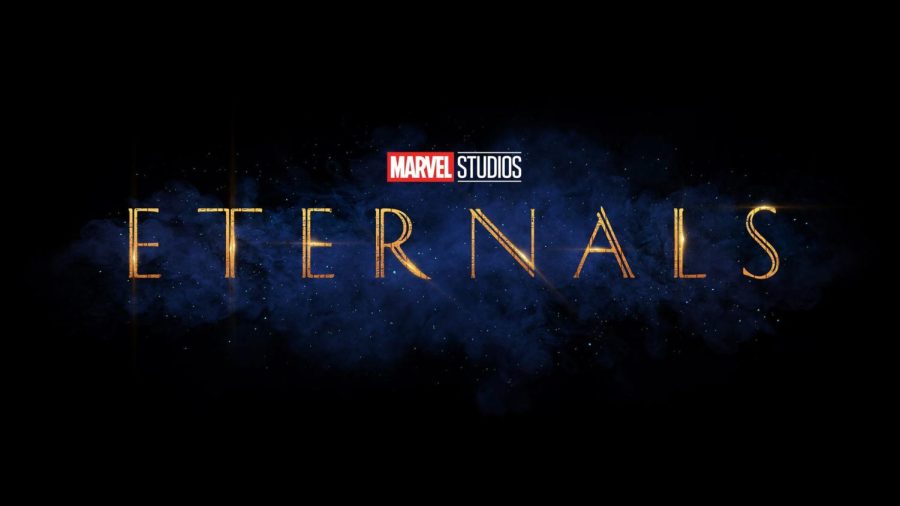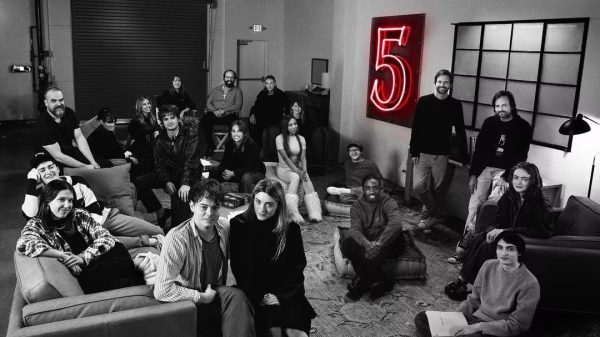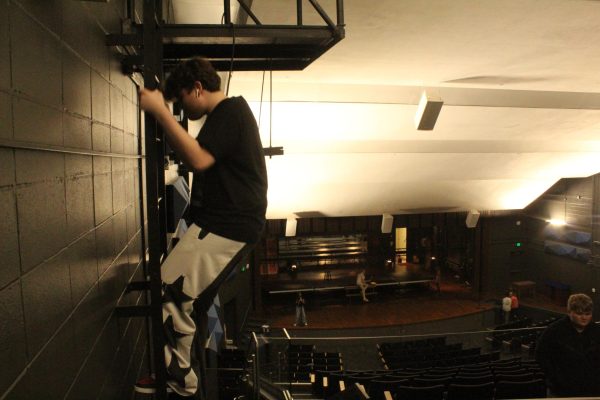Eternals: not the best, not the worst, just okay
HEAVY SPOILERS AHEAD
A large question that is still hanging over the heads of Marvel fans everywhere is what direction is the MCU headed in after the events of Endgame? Many spectators were expecting this question to be answered in the heavily anticipated flick, Eternals, yet it fell short.
Eternals is a film that is set to explain and introduce a series of characters sent to planets by the Celestial being Arishem on a mission to protect and aid the development of intelligent life by helping with technological advances and destroying deviants, creatures designed to hurt humans. Later into the film, it’s revealed that this was never their mission. Their mission all along was to help build the population on planets and birth new Celestials in what is called the emergence, destroying all of the intelligent life they had intended to help.
While the plot is crystal clear, the delivery is majorly lacking. In the beginning, the audience is introduced to many new characters, Ajak (Salma Hayek), Sersi (Gemma Chan), Ikaris (Richard Madden), and a flurry of others. Right off the bat, this introduces a challenge to the viewers who are now forced to keep up with ten brand new names and faces along with their supernatural abilities. Because of the amount of characters that are introduced, you would think the directive and writing teams would allot enough time to fully develop some of these supposedly pivotal characters, especially with a 2 hour and 37 minute run time. Yet despite the length of the film, there are people being pushed completely to the side, Makkari (Lauren Ridloff) comes to mind.
Makkari is the first deaf superhero that is introduced within the MCU. She brings her super speed to the team and a possible blooming relationship with Druig (Barry Keoghan), an Eternal with the power to manipulate the thoughts of others. Both of the characters fell victim to a lack of character development and background, and while it could be argued that Druig did receive an arc, it didn’t feel complete. The arc of his felt more like a beginning and an end, almost as if the audience was told, “Hey, he started as a jerk but now he’s saving Sersi and an entire planet.” The audience didn’t get to see Druig’s emotional growth which I felt I needed to create an appreciation for the character.
For a large portion of the film, it felt as if there was one character who truly got to have a beginning, middle, and an end to their arc, Sersi. Gemma Chan did an excellent job at taking the audience through the turmoil Sersi was going through with the death of Ajak, the potential rising romance with Dane Whitman (Kit Harrington), and the newfound responsibilities of leading the Eternals. Chan brings a likability to the character and a realness as she portrays the inner conflict of following your heart and your gut instinct or becoming a follower and doing what you’re told simply because it’s what’s always been done. She did a magnificent job at showcasing that frustration and confusion.
One thing I’m extremely pleased with when it comes to this film is the diversity that is shown. As previously mentioned, Eternals features the first deaf superhero in the MCU, Makkari, but they also introduce the MCU’s first-ever gay superhero with Phastos (Brian Tyree Henry). In 2021, you would think that these kinds of firsts would now be few and far between when it comes to LGBTQ+ representation. Despite the fact that it took so long, it’s a major positive that it is happening and people can now watch movies and find themselves in them. Progress is being made and that is something to celebrate.
As is tradition with Marvel flicks, Eternals features two end-credit scenes. The first isa scene with Makkari, Druig, and Thena (Angelina Jolie). As they’re discussing the future of the Eternals and how they will continue, two new characters are introduced. There’s Pip the Troll (Patton Oswalt), a companion of the brother of Thanos, Eros (Harry Styles) who is also introduced in this scene. This clip gave absolutely no clarity of the future of the MCU but did indicate that this is not the last fans will see of this group of characters. The second end-credit scene however did leave many in the theater gasping in shock. We’re redirected back to Dane Whitman and see him talking to himself, standing over a case. After his confession to Sersi of having a strange family dynamic, I was already raising my eyebrows at the possibilities. As he opened the case, we’re shown a long sword and then a voice comes from offscreen asking, “Are you sure you’re ready for that, Mr. Whitman?” Right away, it was clear that this is how they will be introducing the character Blade to the MCU, which brought a lot of excitement to the comic book fans in the theater.
Putting the plot to the side completely, the cinematography of this film cannot be ignored. Director Chloé Zhao provided stunning visuals with a brilliant usage of light. The backlight against some characters, providing haunting silhouettes left the audience in complete awe. The CGI was also top tier. Of course, you could clearly see that Ikaris wasn’t actually shooting laser beams out of his eyes, yet it was so cohesive with the background and their reality that the actualities of laser beams became insignificant.
One thing that did surprise me was the critics’ reviews. The film only scored a 48% on Rotten Tomatoes, which in my opinion is completely undeserving. While the film is by far not one of the best Marvel flicks, it’s also not the worst. Between the lack of character development and trying to cram too much into too short of a time frame, I think it’s safe to call the movie simply mediocre. While it’s still better than Thor: The Dark World, it’s nowhere near as good as Thor: Ragnarok.
I would rate the film a 6.5/10.







